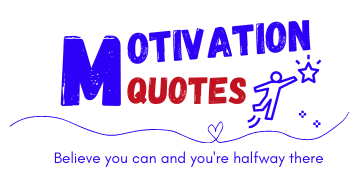Introduction
Communication is the cornerstone of motivation. In every aspect of life, whether personal or professional, the way we communicate can make or break our motivation to succeed. Effective communication creates a connection that drives enthusiasm, fosters engagement, and encourages people to take action. This article explores the essential role communication plays in motivating individuals and teams, enhanced with visual representations to emphasize key points.
1. Building Trust Through Clear Communication
Trust is a fundamental aspect of motivation, and communication is the bridge that builds it. When leaders communicate openly and honestly, it fosters trust within the team. This trust, in turn, encourages individuals to invest their energy and efforts into their tasks. Clear and transparent communication eliminates confusion and aligns everyone with the organization’s vision and goals, keeping motivation high.
2. The Power of Feedback and Recognition
Positive communication in the form of feedback and recognition plays a crucial role in motivation. When people feel valued and appreciated for their contributions, they are more likely to stay motivated and continue performing at a high level. Feedback, both positive and constructive, provides direction and reinforces progress, fueling ongoing motivation. Regular recognition helps individuals feel connected to the larger mission, inspiring them to go the extra mile.
3. Encouraging Open Dialogu
Motivation thrives in an environment where communication is a two-way street. Encouraging open dialogue and active listening creates a culture of inclusivity and respect. When team members feel that their voices are heard, they are more likely to be motivated to contribute innovative ideas and stay engaged. Open communication channels ensure that everyone is on the same page and that potential issues are addressed before they escalate, keeping the team motivated and focused.
4. Emotional Connection and Inspiration
Emotionally intelligent communication can significantly enhance motivation. Leaders who connect with their team on an emotional level through their words can inspire passion and commitment. Sharing the “why” behind tasks and aligning work with a greater purpose motivates individuals beyond just completing tasks—they become inspired to make a difference. This emotional connection transforms motivation from a duty into a desire to achieve excellence.
5. Consistency: The Key to Long-Term Motivation
Consistency in communication is essential for sustaining motivation over time. Regular updates, check-ins, and meetings keep everyone informed and aligned. Consistent communication reduces uncertainty and provides a sense of stability, which is vital for maintaining long-term motivation. When team members know they can count on regular, reliable communication, they are more likely to stay focused and engaged.
Conclusion
Effective communication is more than just the exchange of information—it is a powerful tool that drives motivation. By building trust, offering feedback and recognition, encouraging open dialogue, connecting on an emotional level, and ensuring consistency, communication becomes a catalyst for motivating individuals and teams to achieve their best. Strong communication fosters a motivated workforce that is energized, engaged, and committed to success.


Greetings I am so delighted I found your blog,
I really found you by mistake, while I was researching on Bing for
something else, Anyways I am here now and would just like to say cheers for a incredible post and a all round enjoyable blog (I also love the theme/design), I don’t have time
to browse it all at the minute but I have saved it and
also added in your RSS feeds, so when I have time I will be back to read a lot more,
Please do keep up the awesome work.
My partner and I stumbled over here by a different web address and thought I
should check things out. I like what I see
so i am just following you. Look forward to looking at
your web page yet again.
What’s up, yeah this paragraph is in fact fastidious and I have learned lot of things from it regarding
blogging. thanks.
It is not my first time to go to see this web page, i am visiting this site dailly and get nice information from here every day.
Hi there I am so glad I found your site, I really found you by error, while I was searching on Aol
for something else, Regardless I am here now and would just like
to say thanks a lot for a remarkable post and a all round thrilling blog (I also love the theme/design),
I don’t have time to read through it all at the minute but I have bookmarked it and also added in your RSS
feeds, so when I have time I will be back to read much more, Please do keep up the great work.
Great post. I’m going through many of these issues as well..
Hey there! I’m at work browsing your blog from my new apple iphone!
Just wanted to say I love reading through your blog and look
forward to all your posts! Carry on the fantastic work!
Hello.
Good cheer to all on this beautiful day!!!!!
Good luck 🙂